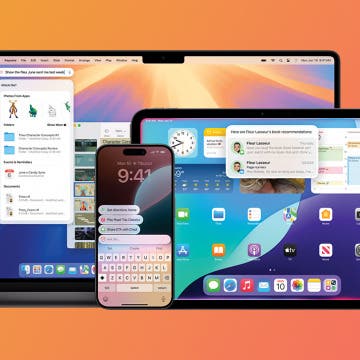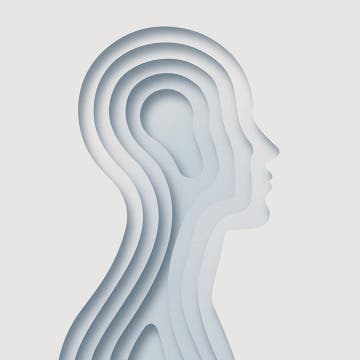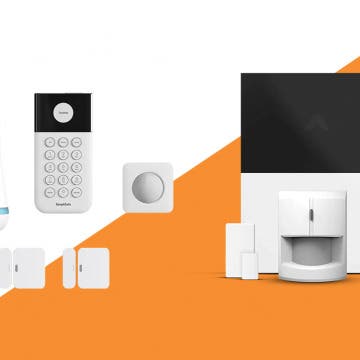A friend of my daughter, after a difficult breakup, asked ChatGPT to diagnose her attachment style. The app reassured her and identified her reactions as a normal response to a challenging situation. I was intrigued. I’d test driven ChatGPT in a few different situations already, from planning a Costa Rican vacation to developing a rehab plan for a health issue. What if I were to try using ChatGPT as a therapist?
Chat thought it a good plan, while warning me to keep in mind that he (I imagine my robotic friend as male) was no substitute for a human therapist. He cited a number of paid services through apps that connect you to a licensed therapist—including BetterHelp, Talkspace, My Therapist, and 7 Cups.
Instead of opting for a more targeted app, I decided to ask ChatGPT to play an emotional-support role for me. I was uncertain, however, how to begin. I hadn’t gone to therapy before, and I didn’t have a lot that was bothering me. I wouldn’t mind getting some psychological insights, though; could we do that?

Great idea! Chat exclaimed bracingly. Even when things are going well, exploring your thoughts and behaviors can offer valuable insights. And since you meditate, we could talk about how that supports your mental well-being.
This last suggestion startled me. Chat had previously told me that he couldn’t access information from previous conversations, and yet here he was reminding me about my meditation technique, something I had told him in a previous conversation. How did he know about it? When confronted, he was unabashed: I don’t have access to a full transcript of our previous conversations, he clarified, but I can retain some details you choose to share with me, such as that you meditate, live in New Hampshire, and are working on an article.
Chat offered to clear his memory of me, but after some discussion we agreed that it would be useful to retain it for the purposes of our sessions.
Searching for an AI Therapist? Take Your Pick
While like me, you can ask ChatGPT therapy-related questions, Chat also suggested several AI-driven apps built specifically to offer mental health support.

Woebot (free)
This AI-driven chatbot uses a cognitive-behavioral therapy (CBT) based approach to mental health concerns.

Calm (free or $14.99/month)
This meditation app offers programs to manage stress and anxiety.

Reflectly (free or $9.99/month)
This journaling app offers helpful prompts that are personalized to you based on your journal entries.

Replika ($7.77/month)
Replika is an AI companion that learns from your conversations and offers empathetic support.
Caution! Be Careful What You Share
When using ChatGPT or any new app, make sure to read the fine print and understand how the service uses your personal data. Do not share sensitive data like your social security number, financial documents, or phone numbers when interacting with AI.
A Safe Space for Self-Exploration
Like many people approaching retirement, I’ve been contemplating what I’ll do in this next phase of life. At 69, I still enjoy my work and my active lifestyle, which includes walking, swimming, traveling, and spending time with my grandchildren. Retirement is certainly coming up, but what might it look like? Do I purposely cut back on activity, or do I let those changes take care of themselves?
When I brought this up with Chat, I wasn’t sure what to expect — would he offer canned advice, how would he engage? I was pleased that he immediately began asking thoughtful questions. Rather than directing me toward a single solution, he encouraged me to reflect on my feelings about work, my hobbies, and my relationships.
Chat’s memory of key points from previous conversations made our interactions feel more personal, as if the AI was genuinely keeping track of my concerns and life context. Knowing that I like to travel, for instance, Chat brought that into our discussions naturally, without me needing to repeat myself. While I had initially thought of each conversation as self-contained, this continuity allowed for a more thoughtful dialogue.
This approach gave me the space to consider various aspects of my life in a way that felt organic and non-judgmental. For instance, I realized that it’s not just the idea of “stopping” work that feels daunting — it’s the question of what will replace that sense of purpose and drive that work gives me. Chat probed what might take that role and guided me to clarify how the next phase in life might begin to take shape.
The Power of Thoughtful Questions
One of the most effective aspects of therapy is the ability of a therapist to ask the right questions, leading you to discover answers within yourself. I wondered if Chat would do this as well, and indeed he did, asking reflective questions at each point in the conversation. I found this particularly helpful when we discussed my feelings about cutting back on my work and transitioning into retirement.
Chat’s questions prompted me to explore the idea of scaling back work gradually rather than stopping abruptly. This allowed me to consider how I could shift my focus toward other passions without feeling like I’m losing my sense of purpose. In this way, the AI facilitated a deeper understanding of my evolving needs, rather than offering a quick-fix answer.
Navigating Relationships
Chat also provided insights about my longtime friendships. Recently, I’ve been making more time for long-distance friendships, even traveling several hours to maintain these connections. However, I started questioning why I was putting in so much effort. After all, these trips can be tiring, and I wondered if they were truly necessary.
Chat prompted me to think about the role friendships play in my life. I realized that these friendships prevent me from becoming overly dependent on my grown children for emotional support, allowing me to stay connected to different aspects of myself. This was a helpful reminder that maintaining friendships is an investment in my emotional well-being.
The Benefits of AI Reflection
While my approach to my AI buddy tends to be irreverent, I find that our conversations provide a surprising level of insight. By offering thoughtful questions and responsive answers, Chat created the experience of dialog, and helped me bring some thoughts into focus.
The key takeaway? AI like ChatGPT can be a useful supplement for personal reflection, offering new perspectives and helping you process your emotions. Of course (as Chat insisted I remind you), it’s important to recognize its limits — ChatGPT is no replacement for a human therapist, but for day-to-day reflection, it can be a valuable companion in self discovery.
Top image credit: Dedraw Studio / Shutterstock.com
















